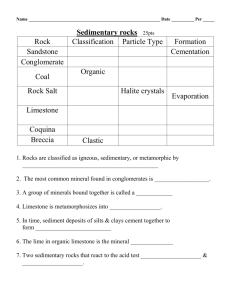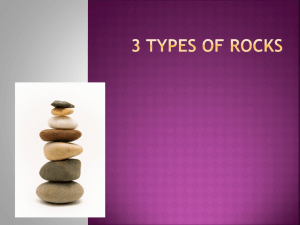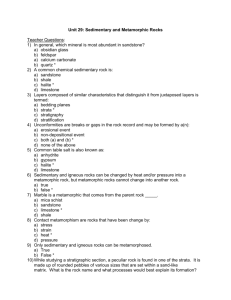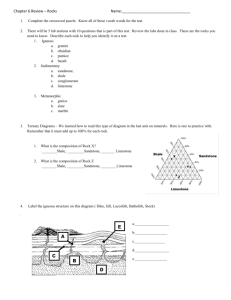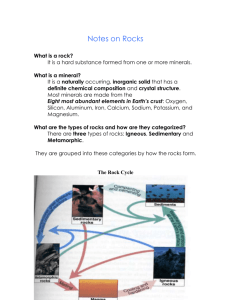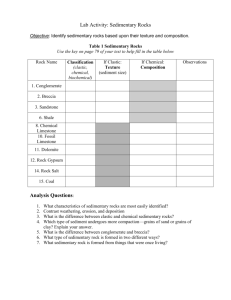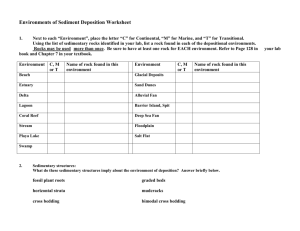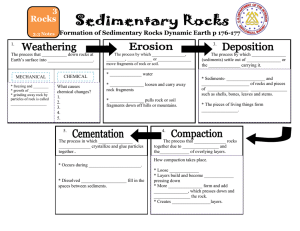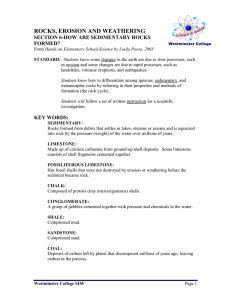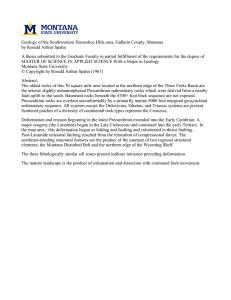SECTION 6: HOW ARE SEDIMANTARY ROCKS FORMED? INTRODUCTION ASSESSMENT ANCHORS ADDRESSED
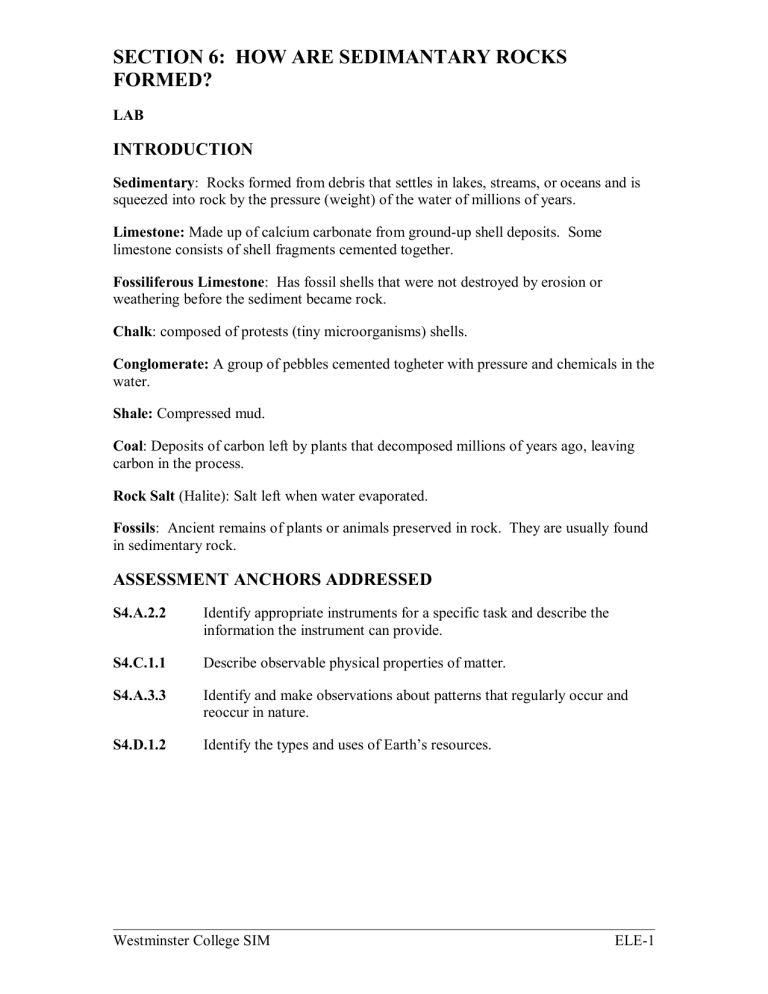
SECTION 6: HOW ARE SEDIMANTARY ROCKS
FORMED?
LAB
INTRODUCTION
Sedimentary : Rocks formed from debris that settles in lakes, streams, or oceans and is squeezed into rock by the pressure (weight) of the water of millions of years.
Limestone: Made up of calcium carbonate from groundup shell deposits. Some limestone consists of shell fragments cemented together.
Fossiliferous Limestone : Has fossil shells that were not destroyed by erosion or weathering before the sediment became rock.
Chalk : composed of protests (tiny microorganisms) shells.
Conglomerate: A group of pebbles cemented togheter with pressure and chemicals in the water.
Shale: Compressed mud.
Coal : Deposits of carbon left by plants that decomposed millions of years ago, leaving carbon in the process.
Rock Salt (Halite): Salt left when water evaporated.
Fossils : Ancient remains of plants or animals preserved in rock. They are usually found in sedimentary rock.
ASSESSMENT ANCHORS ADDRESSED
S4.A.2.2
Identify appropriate instruments for a specific task and describe the information the instrument can provide.
S4.C.1.1
S4.A.3.3
S4.D.1.2
Describe observable physical properties of matter.
Identify and make observations about patterns that regularly occur and reoccur in nature.
Identify the types and uses of Earth’s resources.
Westminster College SIM ELE1
Igneous Rocks
PURPOSE
Students will study how sedimentary rocks are formed and compare the differences between common sedimentary rocks suck as, chalk, shale, conglomerate, and sandstone.
MATERIALS
For the Teacher:
1 tall jar
Sand
1 Sedimentator
For Each Pair:
Red sandstone
Gray sandstone
Limestone
Soil
Clay soil (red)
Chalk
Shale
1 cup water Conglomerate
18 fossiliferous Limestone Rocks magnifier
Teacher provides items marked with *
Westminster College SIM ELE2
